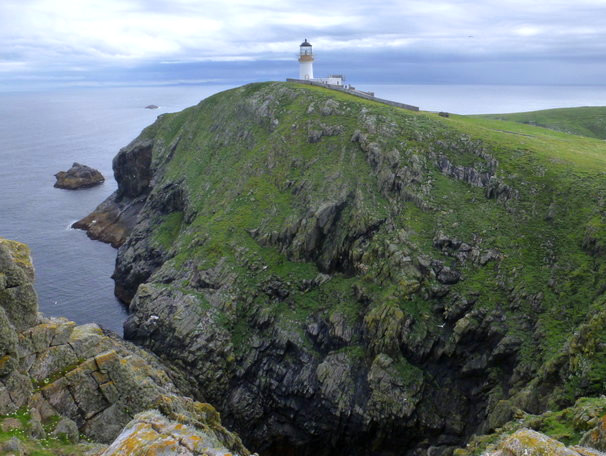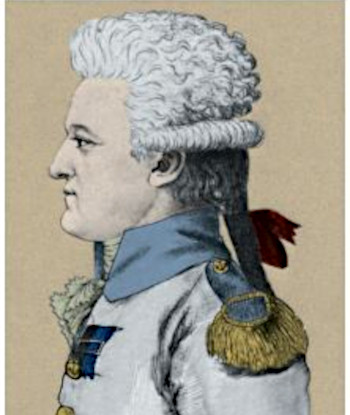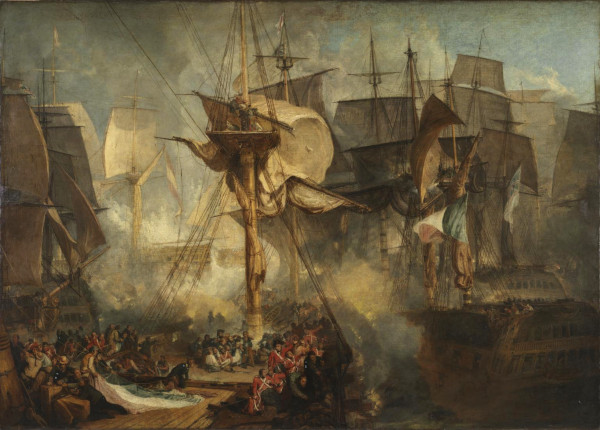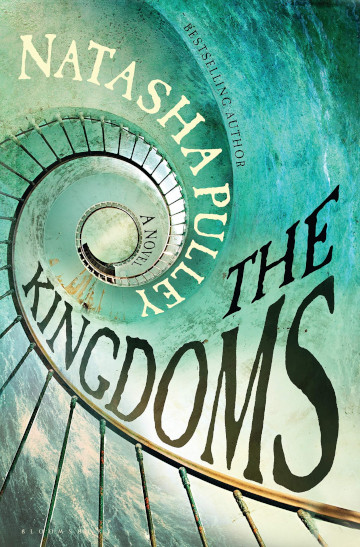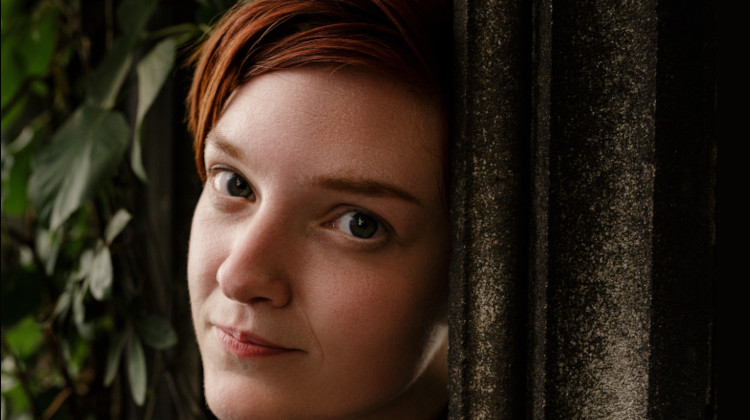
Natasha Pulley was shortlisted for the 2022 Gold Crown Award for her novel The Kingdoms. Readers of her books, including The Watchmaker of Filigree Street, won’t be surprised that the judges loved its compelling strangeness, calling it: “An intricate, immersive tale set in an alternative Britain, where Napoleon won the war and French is spoken on the streets of London. With a central mystery, adventure on the high seas, romance, and incredible world building.” Historia spoke to Natasha about her work.
Natasha, congratulations on being shortlisted for the HWA Gold Crown Award! What does being on the list mean to you?
Thank you! It means a lot. It feels like an official record that some people have a) read the book, which was published in the middle of the pandemic and therefore sort of vanished into the ether, and b) claimed to quite like it. It’s a lovely thing to be shortlisted for an award like this.
The Kingdoms has been called historical fiction, alternative history, steampunk, science fiction, speculative fiction; it’s gloriously genre-defying. How would you describe it?
Really it’s just a story about a bloke who gets a mysterious letter and winds up at a lighthouse under peculiar conditions.
I think genre is often ascribed to stories after they’ve been written; I don’t know many writers who sit down and say, aha, today I shall write a historical steampunk thriller. It tends to be more along the lines of, what bizarre thing can I do with this character I love, and can I shoehorn in a tortoise somehow?
Where did the initial idea for The Kingdoms come from?
I don’t know where it came from, but I know what the first idea was. I had this image of two moons above a lighthouse, and also of a woman running ahead of encroaching frost on her wedding day; a lot of the fantasy element came about because I wanted to work out how to make sense of those things, and fit them together.
What did you find most difficult when writing your book? And most enjoyable?
There is a lot of timey-wimey oddness in The Kingdoms, and it was an absolute migraine to sort out. I went through several full drafts, and in the end there was a whole timeline, and a whole narrator, which I cut out because it made everything too complicated. Research was a bit tough as well. I sailed on a tall ship — it was a lot smaller than the one in the book — but my God, I was seasick. My favourite thing to write was Missouri Kite; I love a slightly broken hero in a nice jumper. I still miss him.
While researching The Kingdoms, did you come across any bizarre historical incidents that have stayed with you?
Loads! I think that happens whenever you write historical fiction. Two have really stuck with me. One is the disappearance at the Eilean Mor lighthouse. Three lighthouse keepers vanished in the early 1900s and the mystery is still unsolved.
The other, which is less jazzy I think — but has huge implications, is that Napoleon knew Vice-Admiral Villeneuve wasn’t the right admiral for the job when he ordered the French and Spanish fleets to leave Cadiz in 1805.
He had actually ordered a transfer, and another admiral — who wasn’t so scared of Nelson — was supposed to have been in charge. But Villeneuve missed (or ignored) the order, remained in command, and that might just have been why the French lost at Trafalgar.
You mentioned playing with time earlier, and I think it’s fair to say that The Kingdoms takes a few liberties with the laws of time as we understand them. If you could travel back a century or so, what one thing would you change to make the 2020s a better time to live in?
I doubt I could change anything. I’m one smallish person who, at that time, wouldn’t even have been allowed to go into some libraries alone, or own property, or do much of anything. It would be great to go back and explain solar power to the scientific community of the 1920s — but whether they’d pay any attention to some mousy lady with short hair who wants to show them graphs is something else. Can I transform into an already well-respected engineer with lots of social connections and possibly a weekly meeting with the King? [Of course! Ed]
What do you think the historical novelist can add to our understanding of the past?
A human link. In many ways, people from more than three generations ago are unknowable in the sense that’s acceptable in academic papers — no one has first hand experience of them any more and there are few records of most of them — and what we have left are provable events, which feel to me more like the fossils of people rather than people.
We know Cicero sometimes wore red shoes, and we know he was once Consul; but what Cicero said to his slave on the Tuesday morning before Caesar took power is just lost, and so is nine tenths of his whole life, even though he wrote a lot and was written about a lot.
Historical fiction has the freedom to fill those gaps with all the lovely human things that we can no longer prove. Sometimes those things are a scholarly best guess, like an archaeological reconstruction; sometimes something much stranger. It can only ever paint an illusion of history, but sometimes, it can reach out much further for all that’s lost than academia can.
What advice would you give someone starting to write historical fiction?
Write a bit, research a bit, write a bit; in that order. It’s so tempting to try and complete a PhD’s worth of research, make yourself into an expert, and then start writing, but that doesn’t usually work. Novels are not history theses. You have to know as much as you would for a thesis, but the things you have to know are often very different, and you can’t always predict what they’ll be until you have a shape for the story.
And what are you working on now?
A book about the Greek god of madness, Dionysus. I love him and all the stories about him are arrestingly bananas.
The Kingdoms by Natasha Pulley was published by Bloomsbury on 27 May, 2021.
Natasha Pulley is the author of The Watchmaker of Filigree Street and The Bedlam Stacks. An international bestseller, The Watchmaker of Filigree Street won a Betty Trask Award and was shortlisted for the Author’s Club Best First Novel Award, the Locus Awards, and remained on the Sunday Times bestseller list for much of summer 2016. The Bedlam Stacks was longlisted for the Walter Scott Award and shortlisted for the Encore Award.
She teaches on Bath Spa University’s Creative Writing BA, alongside short courses at the Cambridge Institute of Continuing Education.
This is the fourth in our series of interviews with authors of winning and shortlisted authors from the 2022 HWA Crown Awards.
Previous interviews:
AJ West, who won the HWA Debut Crown Award for The Spirit Engineer.
Clare Mac Cumhaill and Rachael Wiseman, whose Metaphysical Animals won the HWA Non-fiction Crown Award.
Rosie Andrews, shortlisted for the HWA Debut Crown Award for The Leviathan.
2023 HWA Crown Awards
The 2023 HWA Crown Awards, celebrating the best in historical writing, are now open for submissions until 30 April, 2023.
Eligible books will have been published first in the UK between I April, 2022, and 31 March, 2023. They should be set wholly or mainly 35 years or more before their publication date. There are three categories: Gold (best fiction), Debut (fiction) and Non-fiction. For full details and entry form go the HWA Crown Awards page.
Images:
- Natasha Pulley: photo © Jamie Drew, supplied by the publisher
- Eilean Mor, Flannan Isles: lighthouse and northern cliffs: © Chris Downer for Geograph (CC BY-SA 2.0)
- Amiral de Villeneuve, Pierre-Charles Villeneuve: Wikimedia (public domain)
- The Battle of Trafalgar, as seen from the from the Mizen Starboard Shrouds of the Victory by JMW Turner, 1806–8: © Tate (CC-BY-NC-ND 3.0 (Unported))

